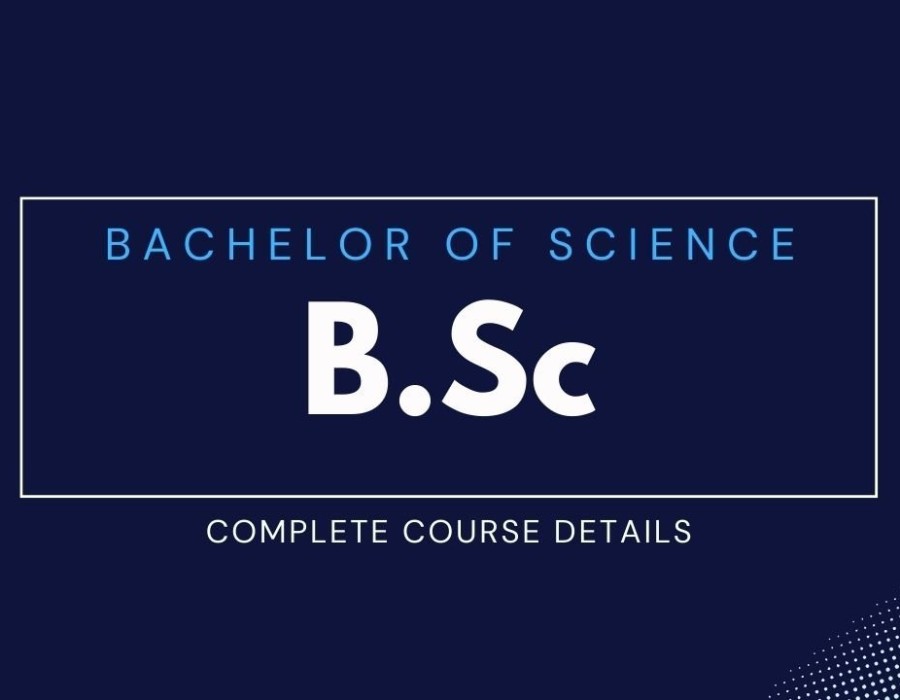The BSc full form is "Bachelor of Science," a widely recognized undergraduate degree that lays the foundation for a scientific or technical career. Among the many branches of BSc, the Bachelor of Computer Science (BSc CS) stands out for its role in shaping skilled professionals in the ever-evolving field of computing. In this article, we’ll dive into the details of a BSc in Computer Science, its curriculum, career prospects, and why it’s an ideal choice for aspiring technologists.
What is BSc Computer Science?
The Bachelor of Computer Science is a three to four-year undergraduate program that focuses on the theoretical and practical aspects of computing. It equips students with essential knowledge in programming, algorithms, database management, and software development. The degree is often pursued by those passionate about technology, problem-solving, and innovation in the digital age.
The BSc full form, Bachelor of Science, emphasizes scientific methods and analytical skills, making it an excellent base for careers in technology and research.
Why Choose BSc Computer Science?
Opting for a BSc in Computer Science is a wise decision for several reasons:
- High Demand: Technology is central to every industry, creating a strong demand for computer science professionals.
- Lucrative Career Opportunities: Graduates often land high-paying jobs in areas like software engineering, data analysis, and AI development.
- Diverse Fields of Application: From healthcare to gaming, computer science expertise is required in nearly every sector.
- Global Recognition: The degree is recognized worldwide, making it easier to pursue international career opportunities.
By pursuing this degree, students gain a competitive edge in the global job market while building a solid foundation in technology.
Core Subjects and Curriculum
The curriculum of a BSc in Computer Science is meticulously designed to cover fundamental and advanced topics. Here’s an overview:
- Programming Languages: Students learn Python, Java, C++, and other programming languages essential for software development.
- Data Structures and Algorithms: This subject focuses on organizing data efficiently and solving computational problems.
- Database Management Systems (DBMS): It covers the design, implementation, and management of databases.
- Operating Systems: Students study how operating systems work, including process management and file systems.
- Computer Networks: This includes concepts like internet protocols, network security, and data communication.
- Artificial Intelligence and Machine Learning: Advanced topics like AI and ML prepare students for cutting-edge technological developments.
- Web Development: This involves designing and building websites using tools like HTML, CSS, and JavaScript.
- Software Engineering: It emphasizes designing, developing, and maintaining software systems.
Practical labs and projects are integral to the course, ensuring hands-on experience alongside theoretical learning.
Skills Acquired During BSc Computer Science
Graduates of this program acquire a versatile skill set, including:
- Proficiency in coding and debugging.
- Analytical thinking and problem-solving.
- Knowledge of modern tools and technologies like cloud computing and data analytics.
- Teamwork and communication skills for collaborative projects.
- Adaptability to evolving technological trends.
These skills make graduates valuable assets in the job market.
Career Opportunities After BSc Computer Science
A BSc full form degree in Computer Science opens doors to numerous career paths. Some popular options include:
- Software Developer: Creating and maintaining software applications.
- Data Analyst: Interpreting complex datasets to inform business decisions.
- Web Developer: Building and optimizing websites.
- IT Consultant: Advising companies on effective IT strategies.
- AI Specialist: Developing intelligent systems and applications.
- Cybersecurity Analyst: Protecting organizations from cyber threats.
- Game Developer: Designing and programming video games.
Graduates can also opt for higher studies, such as a Master’s in Computer Science or specialized certifications in fields like cybersecurity or data science.
Admission Requirements
To enroll in a BSc Computer Science program, students typically need:
- A high school diploma or equivalent with a focus on science and mathematics.
- Entrance exam scores (in some countries or universities).
- Proficiency in English, especially for international programs.
BSc Computer Science vs. Other Degrees
A common question is how BSc in Computer Science compares to degrees like B.Tech or BCA. While all three focus on technology, BSc emphasizes theoretical and research aspects, whereas B.Tech is more engineering-oriented. BCA (Bachelor of Computer Applications) focuses on application-level computing, making BSc a more well-rounded choice for those interested in a deeper understanding of science.
Conclusion
The BSc full form, Bachelor of Science, represents a gateway to a fulfilling career in the scientific and technological domains. A BSc in Computer Science, in particular, offers a unique blend of theoretical knowledge and practical skills, preparing students for a dynamic and lucrative career. Whether you aim to become a software developer, data analyst, or AI specialist, this degree provides the foundation to achieve your aspirations.
FAQs
- What is the BSc full form?
- The BSc full form is Bachelor of Science, an undergraduate degree focusing on scientific and technical subjects.
- What are the career prospects after BSc Computer Science?
- Graduates can pursue roles like software developer, data analyst, IT consultant, or AI specialist.
- Is BSc Computer Science better than BCA?
- BSc offers a deeper theoretical understanding, while BCA focuses on application-level knowledge. The choice depends on career goals.
- What is the average salary after completing BSc Computer Science?
- Entry-level salaries range from $30,000 to $70,000 annually, depending on the role and location.
- Can I pursue a Master’s after BSc Computer Science?
- Yes, you can pursue advanced degrees like MSc or certifications in specialized fields such as data science or cybersecurity.





Comments